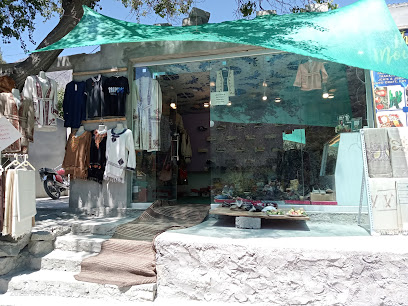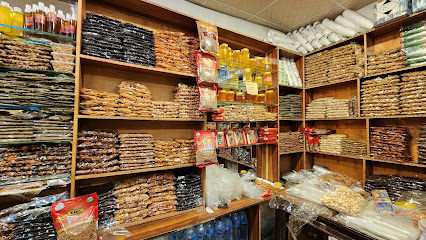
Khunjerab Pass: The Roof of Pakistan
Khunjerab Pass, located at the pinnacle of the Karakoram Range, is one of the highest paved international border crossings in the world. Situated at an elevation of 4,693 meters (15,397 feet) above sea level, it forms a natural border between Pakistan and China. This breathtaking pass is part of the renowned Karakoram Highway, which is often referred to as the 'Eighth Wonder of the World' due to its stunning scenery and engineering marvel. The pass is surrounded by snow-capped peaks and pristine glaciers, offering visitors a chance to experience the raw beauty of the Himalayas. The journey to Khunjerab Pass is an adventure in itself, with winding roads that offer panoramic views of the rugged landscape. The region is home to diverse wildlife, including the elusive snow leopard, ibex, and Marco Polo sheep, making it a paradise for nature enthusiasts and wildlife photographers. At the top of the pass, tourists are greeted with a monumental gate marking the border between the two nations. The area is equipped with basic facilities, and visitors can take in the awe-inspiring views while enjoying the crisp, clean mountain air. Due to its high altitude, it is essential for travelers to acclimatize properly and be prepared for sudden weather changes. Whether you're a thrill-seeker, a nature lover, or a history buff, Khunjerab Pass offers an unforgettable experience that is sure to leave a lasting impression.
Local tips in Khunjerab Pass
- Pack warm clothing, as temperatures can drop significantly even in summer.
- Carry snacks and water, as there are limited facilities at the pass.
- Acclimate to the high altitude by spending a day or two in nearby towns like Sost.
- Check the weather forecast and road conditions before starting your journey.
- Bring your passport, as you will need it to cross the border if you plan to enter China.
Khunjerab Pass: The Roof of Pakistan
Khunjerab Pass, located at the pinnacle of the Karakoram Range, is one of the highest paved international border crossings in the world. Situated at an elevation of 4,693 meters (15,397 feet) above sea level, it forms a natural border between Pakistan and China. This breathtaking pass is part of the renowned Karakoram Highway, which is often referred to as the 'Eighth Wonder of the World' due to its stunning scenery and engineering marvel. The pass is surrounded by snow-capped peaks and pristine glaciers, offering visitors a chance to experience the raw beauty of the Himalayas. The journey to Khunjerab Pass is an adventure in itself, with winding roads that offer panoramic views of the rugged landscape. The region is home to diverse wildlife, including the elusive snow leopard, ibex, and Marco Polo sheep, making it a paradise for nature enthusiasts and wildlife photographers. At the top of the pass, tourists are greeted with a monumental gate marking the border between the two nations. The area is equipped with basic facilities, and visitors can take in the awe-inspiring views while enjoying the crisp, clean mountain air. Due to its high altitude, it is essential for travelers to acclimatize properly and be prepared for sudden weather changes. Whether you're a thrill-seeker, a nature lover, or a history buff, Khunjerab Pass offers an unforgettable experience that is sure to leave a lasting impression.
When is the best time to go to Khunjerab Pass?
Unmissable attractions to see
Babusar Top
Discover the awe-inspiring beauty of Babusar Top, a stunning mountain pass in Pakistan offering breathtaking views and thrilling adventures.
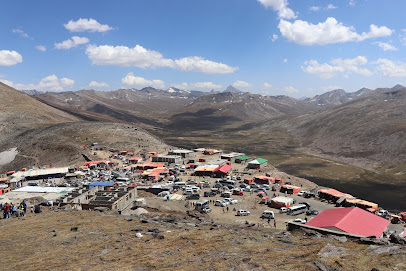
Baltit Fort Hunza
Experience the rich history and breathtaking views at Baltit Fort, a stunning cultural landmark in the heart of Hunza Valley.
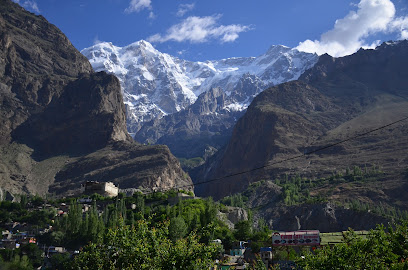
Rakaposhi View Point Hotel & Restaurant
Experience stunning mountain views and authentic local cuisine at Rakaposhi View Point Hotel & Restaurant in Ghulmet, Pakistan.
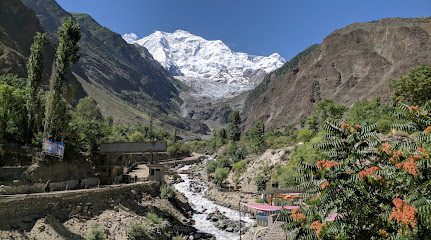
Hunza Valley
Explore Hunza Valley, a breathtaking ravine in Pakistan’s Gilgit-Baltistan, renowned for its stunning landscapes, rich culture, and warm hospitality.
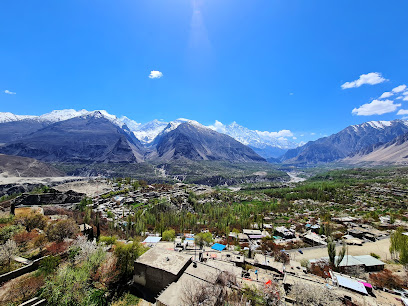
Altit Fort
Discover the historical Altit Fort in Hunza Valley, a stunning landmark rich in culture and breathtaking views, perfect for every traveler.
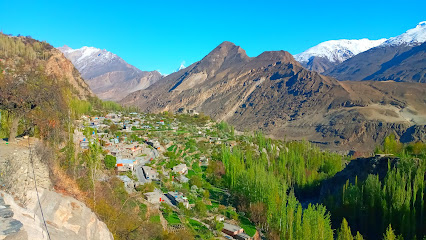
Manthokha Waterfall
Experience the breathtaking beauty of Manthokha Waterfall, a majestic natural wonder in the heart of Pakistan's Kharmang district.
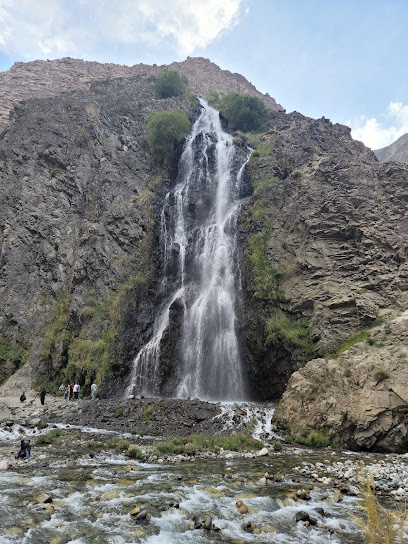
Deosai National Park
Explore Deosai National Park, a breathtaking expanse of nature filled with stunning landscapes, unique wildlife, and exhilarating hiking adventures.
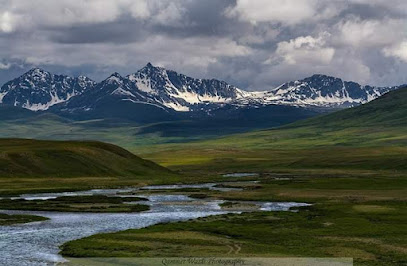
Passu Cones Viewpoint
Discover the stunning beauty of Passu Cones Viewpoint in Hunza Valley, a must-visit destination for nature lovers and adventure seekers.
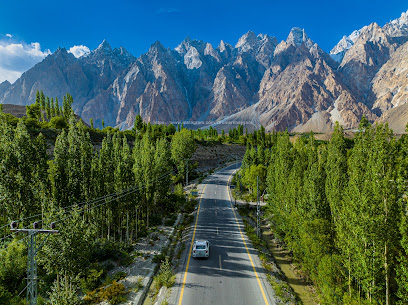
Welcome to Passu
Experience the breathtaking landscapes of Passu, a hidden gem in Gilgit-Baltistan, home to majestic mountains and stunning glaciers.
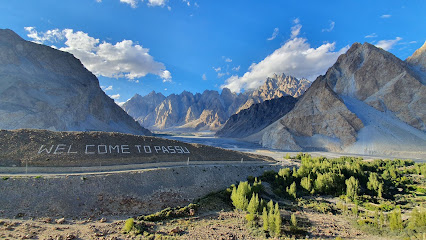
Karimabad Bazar
Explore Karimabad Bazar: A bustling marketplace in Hunza filled with local crafts, mouthwatering food, and stunning mountain views.
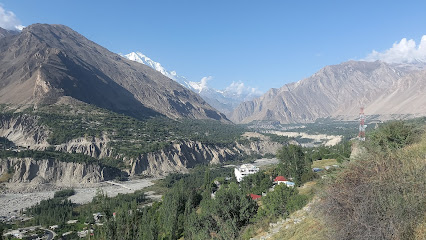
Hussaini Bridge Viewpoint
Experience the breathtaking beauty of Hussaini Bridge Viewpoint, where stunning mountain vistas and adventure await every traveler.
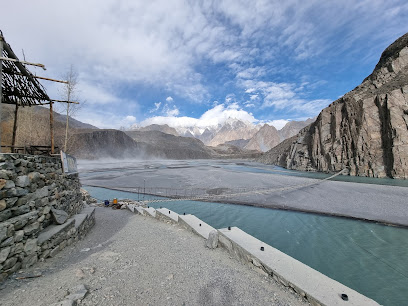
Khamosh Waterfall
Discover the serenity of Khamosh Waterfall in Gilgit-Baltistan, a breathtaking natural attraction perfect for nature lovers and adventure seekers.
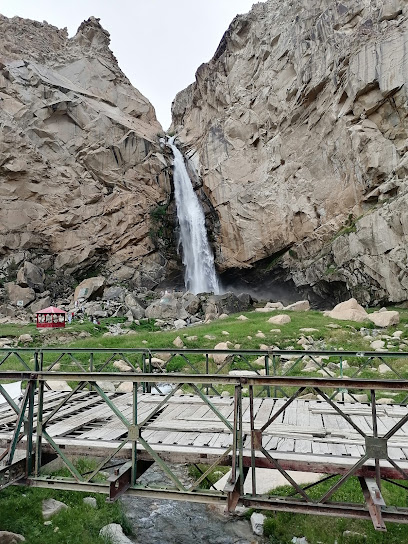
Khunjerab
Discover the breathtaking Khunjerab Pass, the highest international border crossing, where stunning mountain vistas meet rich cultural heritage.
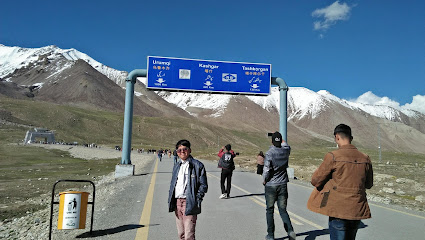
Eagle’s Nest Point
Discover the breathtaking vistas at Eagle’s Nest Point in Hunza, a must-visit for nature lovers and adventure seekers, showcasing stunning mountain panoramas.
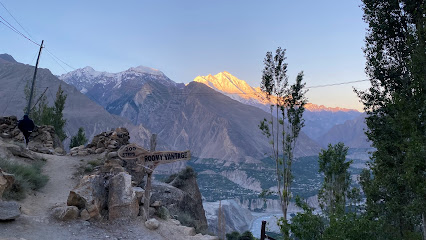
Hunza valley
Discover the stunning landscapes, rich culture, and adventure-filled experiences in the mesmerizing Hunza Valley, a true gem of northern Pakistan.
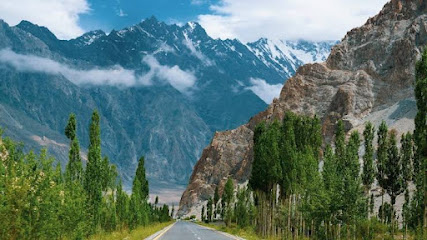
Essential places to dine
Khunjerav Cafe'
Discover delicious local cuisine amidst stunning mountain views at Khunjerav Cafe', your perfect pit stop in Gilgit-Baltistan.
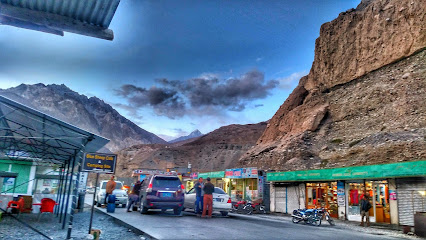
Khunjarab Wild Garden Restaurant & Camping Site Toqroqeen
Experience authentic Pakistani cuisine in a serene setting at Khunjarab Wild Garden Restaurant & Camping Site in Hunza Nagar.
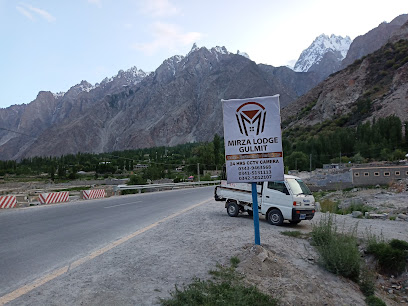
Markets, malls and hidden boutiques
Local Phrases about Khunjerab Pass
-
- Helloسلام
[salaam] - Goodbyeخدا حافظ
[khuda hafiz] - Yesہاں
[haan] - Noنہیں
[nahin] - Please/You're welcomeبراہ کرم
[barah-e-karam] - Thank youشکریہ
[shukriya] - Excuse me/Sorryمعذرت چاہتا ہوں
[maazrat chahta hoon] - How are you?آپ کیسے ہیں؟
[aap kaise hain?] - Fine. And you?ٹھیک ہوں۔ اور آپ؟
[theek hoon. aur aap?] - Do you speak English?کیا آپ انگریزی بولتے ہیں؟
[kya aap angrezi boltay hain?] - I don't understandمجھے سمجھ نہیں آیا
[mujhe samajh nahi aya]
- Helloسلام
-
- I'd like to see the menu, pleaseبراہ کرم مینو دیکھنا ہے
[barah-e-karam menu dekhna hai] - I don't eat meatمیں گوشت نہیں کھاتا
[main gosht nahi khata] - Cheers!خوش رہئیں!
[khush rahiye] - I would like to pay, pleaseبراہ کرم ادا کرنا ہے
[barah-e-karam ada karna hai]
- I'd like to see the menu, pleaseبراہ کرم مینو دیکھنا ہے
-
- Help!مدد!
[madad!] - Go away!دور ہوجاؤ!
[door ho jao!] - Call the Police!پولیس کو بلاؤ!
[police ko bulao!] - Call a doctor!ڈاکٹر کو بلاؤ!
[doctor ko bulao!] - I'm lostمیں گم ہوگیا ہوں
[main gum ho gaya hoon] - I'm illمیں بیمار ہوں
[main bemar hoon]
- Help!مدد!
-
- I'd like to buy...میں خریدنا چاہتا ہوں...
[main kharidna chahta hoon...] - I'm just lookingمیں صرف دیکھ رہا ہوں
[main sirf dekh raha hoon] - How much is it?یہ کتنا ہے؟
[ye kitna hai?] - That's too expensiveیہ بہت مہنگا ہے
[ye bohot mehnga hai] - Can you lower the price?کیا آپ قیمت کم کرسکتے ہیں؟
[kya aap qeemat kam kar sakte hain?]
- I'd like to buy...میں خریدنا چاہتا ہوں...
-
- What time is it?وقت کیا ہوا ہے؟
[waqt kya hua hai?] - It's one o'clockایک بجے ہیں
[aik bajay hain] - Half past (10)دس بج کر پندرہ منٹ ہوچکے ہیں
[das baj kar pandrah minute hochuke hain] - Morningصبح
[subah] - Afternoonدوپہر
[dopehar] - Eveningشام
[shaam] - Yesterdayگزشتہ دن
[guzishta din] - Todayآج
[aaj] - Tomorrowکل
[kal] - 1ایک
[aik] - 2دو
[do] - 3تین
[teen] - 4چار
[chaar] - 5پانچ
[paanch] - 6چھے
[chhe] - 7سات
[saat] - 8آٹھ
[aath] - 9نو
[no] - 10دس
[das]
- What time is it?وقت کیا ہوا ہے؟
-
- Where's a/the...?...کہاں ہے؟
[kahan hai?] - What's the address?پتہ کیا ہے؟
[pata kya hai?] - Can you show me (on the map)?کیا آپ مجھے (نقشے پر) دکھا سکتے ہیں؟
[kya aap mujhe (naqsha par) dikhha sakte hain?] - When's the next (bus)?اگلی (بس) کب ہے؟
[agli (bus) kab hai?] - A ticket (to ....)ایک ٹکٹ (سے .... تک)
[aik ticket (se .... tak)]
- Where's a/the...?...کہاں ہے؟
History of Khunjerab Pass
-
Khunjerab Pass has been a crucial part of the ancient Silk Road, serving as a gateway between the Indian subcontinent and Central Asia. Caravans laden with silk, spices, and other valuable goods traversed this high-altitude pass, facilitating trade and cultural exchange for centuries.
-
During the Tang Dynasty (618-907 AD), Chinese explorers and envoys used the Khunjerab Pass to establish diplomatic and trade relations with distant lands. This period marked an era of significant cultural and economic prosperity, enhancing the pass's historical significance.
-
In the 19th century, during the British colonial rule in India, the Khunjerab Pass was surveyed and mapped by British explorers. Their documentation provided valuable insights into the geography and strategic importance of the region, paving the way for future infrastructure developments.
-
In the 1960s and 1970s, Pakistan and China embarked on a monumental engineering project to construct the Karakoram Highway (KKH), which traverses the Khunjerab Pass at an elevation of 4,693 meters. This highway, often dubbed the 'Eighth Wonder of the World,' significantly improved connectivity between the two countries and boosted trade and tourism.
-
In 1975, the Khunjerab National Park was established to protect the unique flora and fauna of the region, including the endangered snow leopard and Marco Polo sheep. The park covers approximately 2,269 square kilometers and is a testament to the region's rich biodiversity and natural beauty.
-
In recent decades, Khunjerab Pass has become a symbol of the strong bilateral relations between Pakistan and China. Regular cross-border trade, cultural exchanges, and joint infrastructure projects have further solidified the pass's role as a vital link between the two nations.
Khunjerab Pass Essentials
-
Khunjerab Pass is located at the northern border of Pakistan, connecting it with China. The nearest major city in Pakistan is Gilgit, which is approximately 270 kilometers away. To get to Gilgit, you can take a flight from Islamabad, the capital city of Pakistan. From Gilgit, you can hire a taxi or a private car to reach Khunjerab Pass. The journey by road from Gilgit to Khunjerab Pass can take around 5 to 7 hours, depending on weather and road conditions.
-
Once you are in Gilgit, you can hire a private car, taxi, or join a guided tour to reach Khunjerab Pass. Public transport is limited in this remote area, so it is advisable to arrange your transportation in advance. Many tour operators offer packages that include transportation and guided tours of the region. Keep in mind that the road conditions can be challenging, especially in winter, so it is recommended to travel with experienced drivers.
-
The official currency in Pakistan is the Pakistani Rupee (PKR). Credit cards are accepted in larger cities like Islamabad and Gilgit, but in remote areas like Khunjerab Pass, cash is essential. It is advisable to carry sufficient PKR for your entire trip, as ATMs are scarce in the region. Make sure to exchange your currency at authorized exchange centers before heading to remote areas.
-
Khunjerab Pass is generally safe for tourists, but standard precautions should be taken. Avoid traveling alone at night and be cautious in unfamiliar areas. There are no specific high-crime areas targeting tourists, but it is always a good idea to stay vigilant and keep your belongings secure. Due to the high altitude, be aware of altitude sickness and take necessary precautions.
-
In case of an emergency, dial 15 for police assistance and 1122 for medical emergencies. It is highly recommended to have travel insurance that covers medical emergencies, including air evacuation. The nearest medical facilities are in Gilgit, so it is essential to carry a basic first-aid kit and necessary medications. For minor health issues, local pharmacies in Gilgit can provide over-the-counter medications.
-
Fashion: Do dress modestly, as Pakistan is a conservative country. Avoid wearing revealing clothing. Religion: Do respect local customs and traditions. When visiting mosques, cover your head and remove your shoes. Public Transport: Do be respectful and give up your seat to elderly passengers. Avoid loud conversations. Greetings: Do greet people with a handshake. A slight nod of the head is also a sign of respect. Eating & Drinking: Do try local delicacies and accept food offerings graciously. Don't refuse hospitality, as it is considered impolite.
-
To experience Khunjerab Pass like a local, visit the nearby Sost village, where you can interact with the local Wakhi and Hunza communities. Enjoy traditional Hunza cuisine, which includes dishes like Chapshuro and Harissa. Don't miss the opportunity to hike in the surrounding Karakoram mountains and visit the stunning Khunjerab National Park, home to unique wildlife such as the Marco Polo sheep and snow leopards.
Nearby Cities to Khunjerab Pass
-
Things To Do in Skardu
-
Things To Do in Naran
-
Things To Do in Kaghan
-
Things To Do in Swat
-
Things To Do in Chitral
-
Things To Do in Abbottabad
-
Things To Do in Murree
-
Things To Do in Leh
-
Things To Do in Islamabad
-
Things To Do in Rawalpindi
-
Things To Do in Peshawar
-
Things To Do in Jammu
-
Things To Do in Osh
-
Things To Do in Sialkot
-
Things To Do in Jalal-Abad





